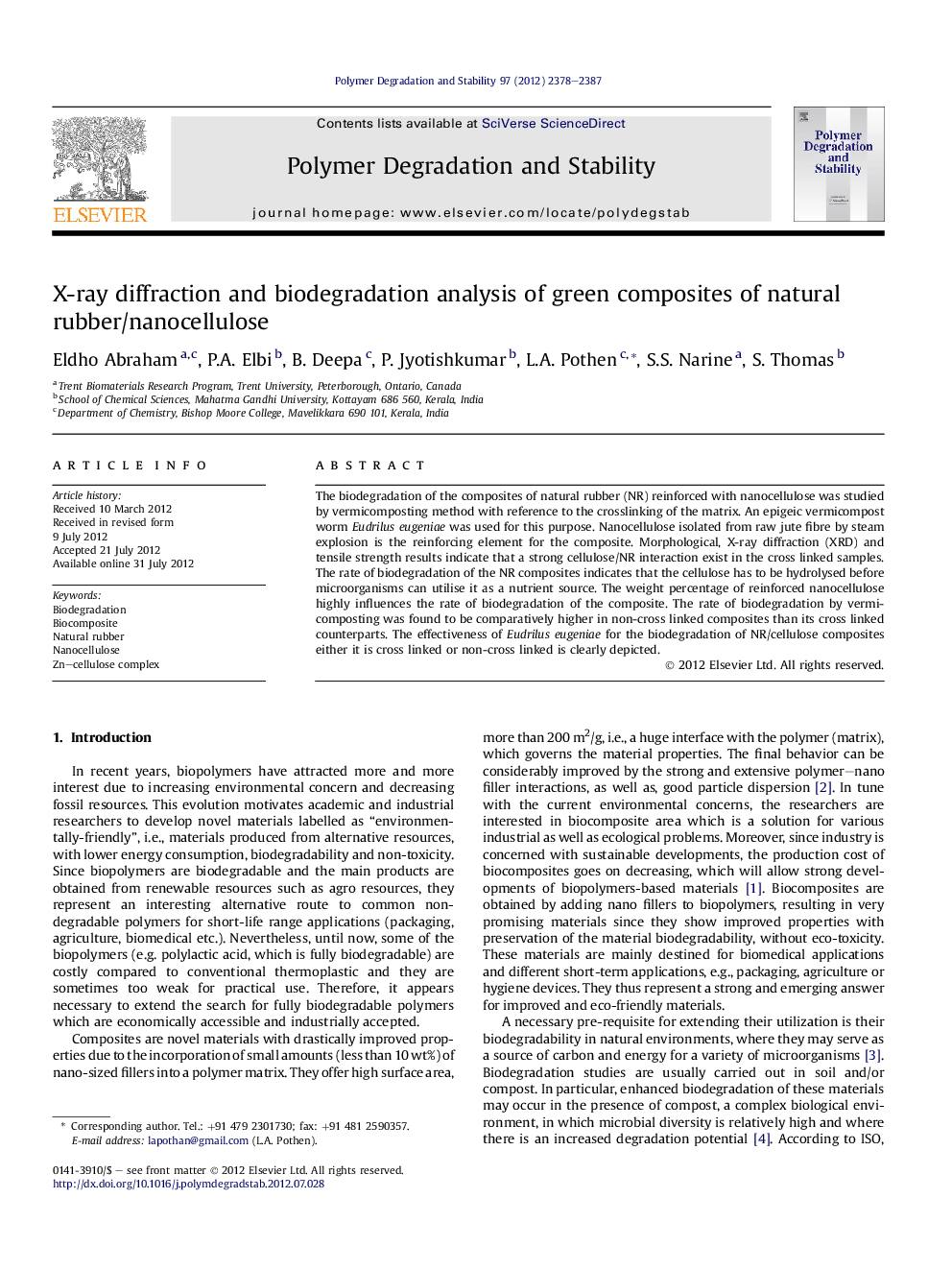| Article ID | Journal | Published Year | Pages | File Type |
|---|---|---|---|---|
| 5202586 | Polymer Degradation and Stability | 2012 | 10 Pages |
Abstract
The biodegradation of the composites of natural rubber (NR) reinforced with nanocellulose was studied by vermicomposting method with reference to the crosslinking of the matrix. An epigeic vermicompost worm Eudrilus eugeniae was used for this purpose. Nanocellulose isolated from raw jute fibre by steam explosion is the reinforcing element for the composite. Morphological, X-ray diffraction (XRD) and tensile strength results indicate that a strong cellulose/NR interaction exist in the cross linked samples. The rate of biodegradation of the NR composites indicates that the cellulose has to be hydrolysed before microorganisms can utilise it as a nutrient source. The weight percentage of reinforced nanocellulose highly influences the rate of biodegradation of the composite. The rate of biodegradation by vermicomposting was found to be comparatively higher in non-cross linked composites than its cross linked counterparts. The effectiveness of Eudrilus eugeniae for the biodegradation of NR/cellulose composites either it is cross linked or non-cross linked is clearly depicted.
Related Topics
Physical Sciences and Engineering
Chemistry
Organic Chemistry
Authors
Eldho Abraham, P.A. Elbi, B. Deepa, P. Jyotishkumar, L.A. Pothen, S.S. Narine, S. Thomas,
